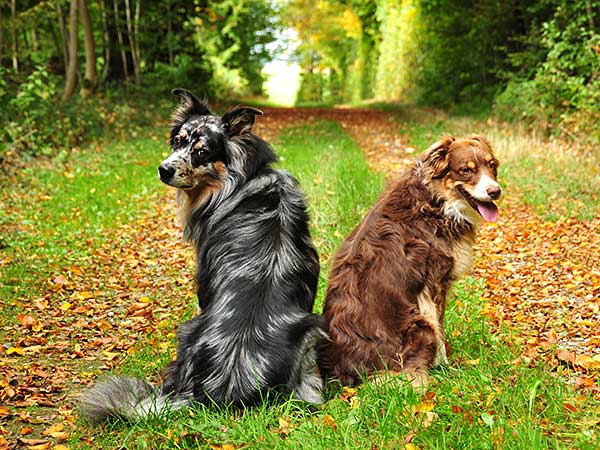
Do You Have A Problem With Your Dog Chewing Their Tail?
A dog chewing their tail or even the area around the base of the tail is a frequent occurrence and it can have a completely innocent cause. Sometimes this behavior is just out of natural curiosity as puppies go through the learning curve. But there can also be underlying causes for your dog to suddenly become fascinated, or even obsessed, with his own tail. Some of them can be quite serious indeed so you should never simply brush this behavior off.
Often tail biting or chewing is a sign of some kind of skin irritation or a parasite infestation. Since your dog spends most of his time on the ground, it can be very easy for him to pick up allergens like pollen or ragweed, which can cause his skin to become irritated and itchy. Other times, parasites like fleas or tapeworms can congregate around the tail or even inside your dog in that region and that can cause discomfort.
Not surprisingly, if there has been some trauma to the tail or the surrounding area, that may be behind your dog chewing tail hair or skin. Wounds, swelling, bruising, bleeding or pus can all become distracting irritants for your dog. Even odor might be the culprit as a dog's highly developed nasal receptors can be extremely sensitive.

kynologieschweiz / stock.adobe.com
In some countries where tail docking is not permitted Australian Shepherds have full tails while in other areas they can have docked or naturally bobbed tails.
Another big culprit in terms of tail chewing, even in breeds like the Australian Shepherd whose tails are often naturally bobbed or docked, can be anal gland issues. If your dog is also scooting his bottom on the carpet, that's a good indication that something may be wrong with his anal glands. As with skin issues, if this is the case for your dog, a vet visit is very important so that he can get treated as quickly as possible.
Not every case of a dog chewing tail has to do with itching or irritation. Sometimes pain is the culprit and it doesn't necessarily have to emanate from the tail area. Chronic hip pain or pain from skeletal abnormalities like hip dysplasia may result in a dog biting at his tail. In these cases, your dog biting his tail would be his way of telling you that something is wrong.
A Dog Chewing Its Tail May Not Be Due To A Physical Issue
Of course, not all tail chewing is related to a physical issue. Sometimes the root cause can be behavioral… a dog who is left alone without anything else to do for long periods of time and becomes bored may seek one of the only forms of entertainment left to him, his own tail. This can be particularly true for active breeds like the Australian Shepherd, that don't handle a lot of "down time" very well.
And like any children, puppies will go through a naturally curious stage during which they are discovering everything about themselves and their environment. In these cases of a dog chewing tail it is likely that the phase will pass on its own as your dog matures and moves on to other interests. Making sure that he has toys to play with and gets plenty of attention can also help.
No matter what the cause, tail chewing should never be dismissed. If your dog suddenly starts chewing his tail out of the blue, you should take him to the vet to make sure there isn't an underlying physical problem. Provided there isn't, you can dissuade this behavior by making sure that you don't laugh or encourage it. Soon your dog will get the message that this isn't acceptable and hopefully he'll leave his tail alone!
Have Dog Training Questions?
Check out these introductory dog training videos...
I want my dog to stop being aggressive.
I want some help training my new puppy.
I want my dog to stop barking at everything.
Get Australian Shepherd Info, Website Updates, Special Offers, and Cartoons...
FREE GIFT
You'll also receive a free copy of the ebook
My Everyday Dog Training Tools
by professional dog trainer Daniel Abdelnoor, "Doggy Dan"









